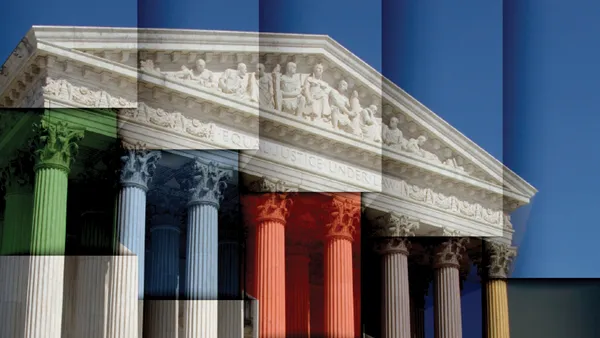Federal courts, in their exclusive jurisdiction over bankruptcy cases, give people and businesses a fresh start when they can no longer pay their debts.
Bankruptcy Courts oversee a process where:
- a debtor repays creditors in a fair and orderly manner to the extent that the debtor has property available for payment;
- a failing business reorganizes by restructuring debt or the business entity itself, or, alternatively, to provide a framework for the orderly liquidation of the failed enterprise; and
- a potentially dishonest action is deterred that would undermine the purposes of bankruptcy law.
A bankruptcy case normally begins by the debtor filing a petition with the bankruptcy court. A petition may be filed by an individual, by spouses together, or by a corporation or other entity. The debtor is also required to file statements listing assets, income, liabilities, and the names and addresses of all creditors and how much they are owed. The filing of the petition automatically prevents, or "stays," debt collection actions against the debtor and the debtor's property. As long as the stay remains in effect, creditors cannot bring or continue lawsuits, make wage garnishments or other collection efforts including making telephone calls demanding payment.
Creditors receive notice from the clerk of court that the debtor has filed a bankruptcy petition. Some bankruptcy cases are filed to allow a debtor to reorganize and establish a plan to repay creditors, while other cases involve liquidation of the debtor's property. In many bankruptcy cases involving liquidation of the property of individual consumers, there is little or no money available from the debtor's estate to pay creditors. As a result, in these cases there are few issues or disputes, and the debtor is normally granted a "discharge" of most debts without objection. This means that the debtor will no longer be personally liable for repaying the debts.
In other cases, however, disputes may give rise to litigation in a bankruptcy case over such matters as who owns certain property, how it should be used, what the property is worth, how much is owed on a debt, whether the debtor should be discharged from certain debts, or how much money should be paid to lawyers, accountants, auctioneers, or other professionals. Litigation in the bankruptcy court is conducted in much the same way that civil cases are handled in the district court. There may be discovery, pretrial proceedings, settlement efforts, and a trial.
Understanding the Federal Courts
Want to further develop your knowledge of the federal courts? Read Understanding the Federal Courts.
Separation of Powers
Federal judges offer insights into their thinking about the separation of powers and describe how healthy tensions among the branches have a stabilizing effect on democracy in this five-minute video.

